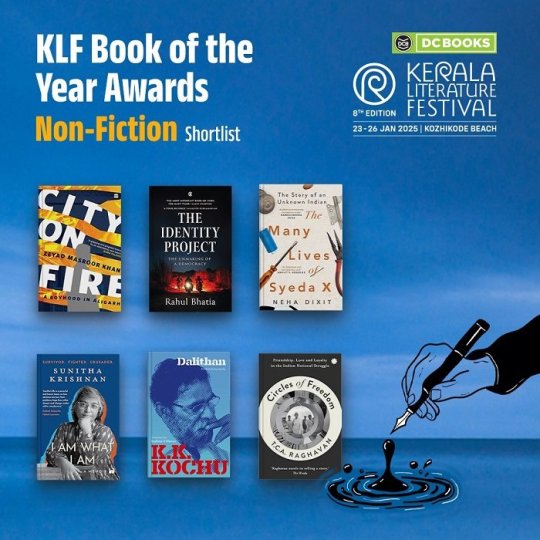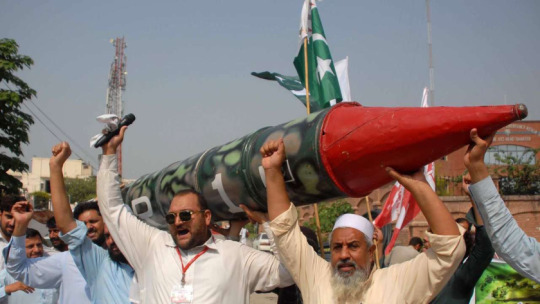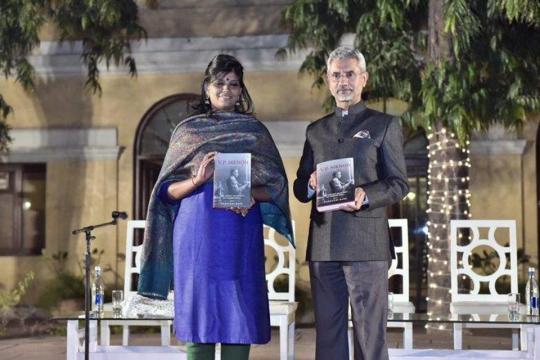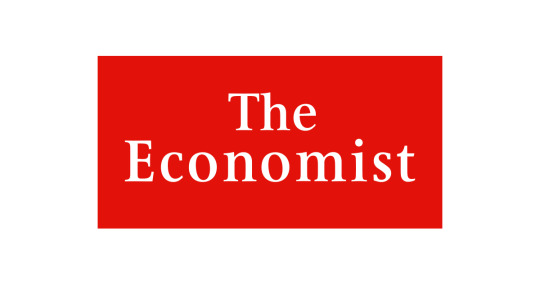#srinath raghavan
Explore tagged Tumblr posts
Text
Watch: Decoding Trump: Disintegrating World Order
[ASIA] Watch: Decoding Trump: Disintegrating World Order | The Hindu Huddle 2025 We should not be unduly nostalgic about the old world order, but the disintegration of the world order is significant because the attack has come from within, T.S. Tirumurti, former Permanent Representative of India to the UN, said on Friday (May 9, 2025). He was speaking at a panel with Srinath Raghavan,…
#Decoding#Disintegrating#Donald Trump#order#srinath raghavan#suhasini haidar#Trump#ts tirumurti#Watch#World
0 notes
Note
Books you would recommend on this topic? Colonial, post colonial, and Cold War Asia are topics that really interest me. (Essentially all of the 1900s)
Hello! An entire century is huge and I don't quite know what exactly you're looking for, but here we are, with a few books I like. I've tried organising them, but so many of these things bleed into each other so it's a bit of a jumble
Cold War
1971 by Srinath Raghavan: about the Bangladesh Liberation War within the context of the Cold War, US-Soviet rivalry, and the US-China axis in South Asia
Cold War in South Asia by Paul McGarr: largely focuses on India and Pakistan, and how the Cold War aggravated this rivalry; also how the existing tension added to the Cold War; also the transition from British dominance to US-Soviet contest
Kennedy, Johnson, and the Nonaligned World by Robert B. Rakove: on the US' ties with the Nonaligned countries during decolonisation and in the early years of the Cold War; how US policy dealt with containment, other strategic choices etc
South Asia's Cold War by Rajesh Basrur: specifically about nuclear buildup, armament and the Indo-Pak rivalry within the larger context of the Cold War, arms race, and disarmament movements
Colonialism
India's War by Srinath Raghavan: about India's involvement in World War II and generally what the war meant for South Asia politically, economically and in terms of defense strategies
The Coolie's Great War by Radhika Singha: about coolie labour (non-combatant forces) in the first World War that was transported from India to battlefronts in Europe, Asia and Africa
Unruly Waters by Sunil Amrith: an environmental history of South Asia through British colonial attempts of organising the flow of rivers and the region's coastlines
Underground Revolutionaries by Tim Harper: about revolutionary freedom fighters in Asia and how they met, encountered and borrowed from each other
Imperial Connections by Thomas R. Metcalf: about how the British Empire in the Indian Ocean was mapped out and governed from the Indian peninsula
Decolonisation/Postcolonial Asia
Army and Nation by Steven Wilkinson: a comparative look at civilian-army relations in post-Independence India and Pakistan; it tries to excavate why Pakistan went the way it did with an overwhelmingly powerful Army and a coup-prone democracy while India didn't, even though they inherited basically the same military structure
Muslim Zion by Faisal Devji: a history of the idea of Pakistan and its bearing on the nation-building project in the country
The South Asian Century by Joya Chatterji: it's a huge book on 20th century South Asia; looks at how the subcontinental landmass became three/four separate countries, and what means for history and culture and the people on the landmass
India Against Itself by Sanjib Baruah: about insurgency and statebuilding in Assam and the erstwhile NEFA in India's Northeast. Also see his In the Name of the Nation.
I hope this helps!
55 notes
·
View notes
Text
#news#India#IndiraGandhi#ManasiSubramaniam#MileeAshwarya#PenguinRandomHouse#SrinathRaghvan#impactnews
0 notes
Text
KLF Book of the Year Awards shortlist

The Kerala Literature Festival (KLF) has announced the shortlist for the KLF Book of the Year Awards. There are six titles in the fiction and six titles in the non-fiction category in the shortlist. The KLF Book of the Year Awards is a debut award instituted by KLF. The awards recognize exceptional contributions to literature, celebrating the finest works of fiction and non-fiction of the year.
The award is adjudicated by an esteemed panel of writers with extensive expertise in the literary field. Jeet Thayil, Jerry Pinto and Mridula Koshy were the jury members of the fiction category while Meena Kandasamy, Akshaya Mukul and Satish Padmanabhan served as the jury members of the non-fiction category.
The shortlist was announced on 15 January 2025.
Shortlist of KLF Book of the Year Awards Fiction is as follows:
The Day the Earth Bloomed by Manoj Kuroor, translated from the Malayalam by J Devika, published by Bloomsbury India
The Distaste of the Earth by Kynpham Sing Nongkynrih, published by Penguin
Lorenzo Searches for the Meaning of Life by Upamanyu Chatterjee, published by Speaking Tiger
Sanatan: A novel by Sharankumar Limbale, translated by Paromita Sengupta, published by Vintage Books – an imprint of Penguin
Sakina's Kiss by Vivek Shanbhag, translated from the Kannada by Srinath Perur, published by Penguin
Chronicle of an Hour and a Half by Saharu Nusaiba Kannanari, published by Context – an imprint of Westland

Dalithan: An Autobiography by KK Kochu, translated from Malayalam by Radhika P Menon, published by Speaking Tiger
The Identity Project: The Unmaking of a Democracy by Rahul Bhatia, published by Context – an imprint of Westland
The Many Lives of Syeda X: The Story of an Unknown Indian by Neha Dixit, published by Juggernaut
City On Fire: A Boyhood in Aligarh by Zeyad Masroor Khan, published by HarperCollins India
I Am What I Am: A Memoir by Sunitha Krishnan, published by Westland
Circles Of Freedom: Friendship, Love and Loyalty in the Indian National Struggle by TCA Raghavan, published by Juggernaut
“The KLF Book of the Year Awards is the debut award instituted by the Kerala Literature Festival. By celebrating diverse voices and stories, the awards foster a deeper appreciation for literature's power to connect, inspire, and transform. It is heartening to see such a rich and eclectic shortlist, reflecting the depth and diversity of contemporary writing in both fiction and non-fiction in the past one year. KLF has always stood as a platform for meaningful dialogue and exchange, and these awards further strengthen its commitment to the literary arts. My heartfelt congratulations to all the shortlisted authors, and I look forward to the unveiling of the final winners. We hope that this initiative of ours could be vital for nurturing and celebrating literary talents in India,” said Ravi Deecee, chief facilitator, Kerala Literature Festival.
0 notes
Text
The rules are to reply and tag people you want to know better and/or catch up with, I was tagged by @rouxney , thank you 🖤🙏
Favorite color : Blue, black, but also red.
Last song : The Quaker City Night - Some of Adam's Blues.
Current reading : The Selfish Gene by Richard Dawkins - Creatures of a Day by Irvin D. Yalom - The Most Dangerous Place by Srinath Raghavan.
Current craving : Quattro Formaggi pizza.
Coffee or tea : Both ! Hot coffee in the morning and iced tea during the day.
Tagging : @diavolaangelica , @originallandlockedmariner @thedepressedpelican , @n0eonheart , @tchiiw , @alwayselusivelove , @nautilus-20000 @ilmi0-labirint0 , @la-parenthese-d-an-ghi , and anyone else who feels like it... 🫶
Rules are to answer and tag some people you want to know better and/or catch up with, I was tagged by @quite-awful 🖤 Thank you!
Favorite Color: Black. Always black.
Last Song: Slow Show - The National
Currently Reading: The Compassionate Mind - Paul Gilbert, Love Utley - S.J Tilly, Notes From The Deep - Christopher Gutierrez, and The Mixer - Michael Cox.
If you want to argue about how many books one should be reading at any given moment you know where I am.
Currently Craving: Fresh bread and butter and a cool winters day.
Coffee or Tea: Both. Iced coffee first thing every morning, rain or shine, +30C or -30C. Tea in the afternoon.
Tagging @afawnsdiary @fastorslow @feralchaton @anotherblueday @elle-mood @justastheyplayoursong
46 notes
·
View notes
Text
A book titled ‘The Fourth Lion: Essays for Gopalkrishna Gandhi’
A book titled ‘The Fourth Lion: Essays for Gopalkrishna Gandhi’ authored by Venu Madhav Govindu and Srinath Raghavan. The book consists of twenty-six essays contributed by individuals drawn from various walks of life and from across the globe.
Gopalkrishna Gandhi has been an administrator, diplomat, author, and public intellectual of distinction for over four decades. His writings have spanned diverse genres, showcasing both his deep scholarship as well as a profound engagement with issues of politics, history, literature, and culture.
#current affairs#current events#current news#education#tumblr#general knowledge#daily dose of ca#newspaper#articles#blogs
1 note
·
View note
Text
Clinton warned Sharif of dangers of going to war with India: excerpts from The Most Dangerous Place by Srinath Raghavan | books | excerpts
Clinton warned Sharif of dangers of going to war with India: excerpts from The Most Dangerous Place by Srinath Raghavan | books | excerpts
[ad_1]
Srinath Raghavan’s latest book, The Most Dangerous Place, details the history of US involvement in South Asia, discussing its engagement with India, Pakistan and Afghanistan. It looks at how the US has been a crucial player in regional affairs even as South Asia experienced tumultuous changes. Excerpts:
On the Kashmir crisis
In early 1990, New Delhi accused Pakistan of arming and training…
View On WordPress
#Hillary Clinton#Indian envoy to Pakistan#Indira Gandhi#Kargil war#Nawaz Sharif#Pakistan Army#Srinath Raghavan#The Most Dangerous Place#US India ties
0 notes
Text
Doklam standoff: China playing out its ‘Three Warfares’ strategy against India | India News - Times of India
Doklam standoff: China playing out its ‘Three Warfares’ strategy against India | India News – Times of India
Indian strategists who are involved with China in the current Doklam crisis believe China has now fully operationalized this concept and is applying it to the Doklam crisis. NEW DELHI: Is China playing out its ‘Three Warfares’ strategy against India? Indian strategists who are involved with China in the current Doklam crisis believe China has now fully operationalized this concept and is applying…
View On WordPress
#doklam standoff#IDSA#Manila#Phillipines#sikkim#Srinath Raghavan#Sushma Swaraj#via bookmarklet#Wang Yi
0 notes
Text
Neyyattinkara Gopante Aaraattu 2022 AkulTalkies.com
Mohanlal, Shraddha Srinath, Swasika Vijay, Ramachandra Raju, Indrans, Prabhakar, Johny Antony, Ashwin Kumar, Lukman Lukku, Vijayaraghavan, Neha Saxena, Kottayam Ramesh, Seetha, Siddique, Sharik Khan, Nedumudi Venu, Saikumar, Sheela, Sadhika Venugopal, Rachana Narayanankutty, Santhosh Keezhattoor, Malavika Menon, Sadhika Suresh Menon, Baiju Ezhupunna, Rony David, Maya Vishwanath, Nandu, Dhruvan, Kochu Preman, Neil Vincent, Shivaji Guruvayoor, Raghavan, Biju Pappan
https://www.akultalkies.com/neyyattinkara-gopante-aaraattu-2022
#Mohanlal#ShraddhaSrinath#SwasikaVijay#RamachandraRaju#Indrans#Prabhakar#JohnyAntony#AshwinKumar#LukmanLukku#Vijayaraghavan#NehaSaxena#KottayamRamesh#Seetha#Siddique#SharikKhan#NedumudiVenu#Saikumar#Sheela#SadhikaVenugopal#RachanaNarayanankutty#SanthoshKeezhattoor#MalavikaMenon#SadhikaSureshMenon#BaijuEzhupunna#RonyDavid#MayaVishwanath#Nandu#Dhruvan#KochuPreman#NeilVincent
0 notes
Note
hello, hope you’re doing well! i love the aesthetic of your blog ^^ ✨ would you happen to have any book/article recs for someone who wants to know about india’s war history? (this area of study is probably broad, and apologies for not narrowing the question down, but i’m just starting out, so literally anything about india’s war history would do ^^) thank you, and take care! 💕
hi! thank you so much! sorry this took a while. my phone isn't working so i only check tumblr when i use the laptop, which isn't that often.
it is a broad field, yeah, so here you go with a bunch that covers as much range as i could think of:
1971: A Global History of the Creation of Bangladesh by Srinath Raghavan ─ about the Bangladesh war; really great because it places the war in a Cold War context. Also generally check out Raghavan, especially his India’s War: World War II and the Making of Modern South Asia and War and Peace in Modern India.
Climate of Conquest: War, Environment, and Empire in Mughal North India by Pratyay Nath ─ looks at warfare in an environmental and cultural context in that he sees the army or fighting as part of society; looks at what Mughal warfare tells you about the state; at how the environment played a role in determining strategies and outcomes
1962: The War That Wasn’t by Shiv Kunal Verma ─ about the 1962 war/debacle; pretty good in that it covers all major details
Watershed 1967 by Probal Dasgupta ─ on the clash in Sikkim over Nathu La and Cho La between India and China, which India won; and the road to ‘peace’ after that
India’s Wars: A Military History, 1947-1971 by Arjun Subramaniam ─ pretty much what it sounds like, focuses primarily on the armed forces; there’s also a second part to this: Full Spectrum, which covers everything between 1971 and 2019/20
Solstice at Panipat by Uday Kulkarni ─ the buildup to and the climax of the Panipat battle; what it meant for the Maratha-Peshwa empire and for South Asia
1965, Turning the Tide by Nitin Gokhale ─ an account of the 1965 war, what went wrong/right; but mostly about how India won
Women at War: Subhas Chandra Bose and the Rani of Jhansi Regiment by Vera Hildebrand ─ about the Rani of Jhansi Regiment of the INA, which was the first all-women infantry unit; I haven’t read this, but it comes well-received and it looks very interesting
here are also a few academic ones that have been on my reading lists for classes:
Warfare and Weaponry in South Asia, 1000-1800 by Dirk Kolff, Jos Gommans ─ takes a historical view of the development of military technology and strategies; also considers the social aspects/functions of war, and how it fits into the state structure
Between Mars and Mammon: Colonial Armies and the Garrison State in India by D. Pears ─ about how the colonial standing army developed; how it worked with/for the state; and further what that tells you about how colonial rule worked
Naukar, Rajput, and Sepoy: The Ethnohistory of the Military Labour Market in Hindustan, 1450-1850 by Dirk Kolff ─ on military labour and its relationship with social structures; how ‘standing armies’ developed
i hope that helps, and happy reading!
208 notes
·
View notes
Text
Babylon the Great Creates the First Nuclear War
Babylon the Great Creates the First Nuclear War

The Most Dangerous Place: A History of the United States in South Asia by Srinath Raghavan-Review
— By Jatin Desai | Sep 09, 2018 07:03 am
August 2017, US President Donald Trump announced his policy on South Asia. It emphasised primarily three countries: Afghanistan, India and Pakistan. It was expected that his policy will be different from his predecessor Barack Obama as he is a hardliner. It is…
View On WordPress
#andrewtheprophet#cruise#Daniel 8#Iran#Khan#Missile#nuclear#Pakistan#program#revelation 8#The Pakistani Nuclear Threat (Daniel 8/Revelation 8)Andrew the Prophet#the prophecy#theprophecy
1 note
·
View note
Link
"In the guise of settling a score with Aurangzeb, Hindutva wants to commit hara-kiri on the Indian Constitution, individual freedom and minorities. Alas, we will let this pass too, with a judicial seal of approval to boot." Must read @pbmehta https://t.co/MTaD6kcGFk
— Srinath Raghavan (@srinathraghava3) April 13, 2021
0 notes
Text
Jaishankar’s post on Jawaharlal Nehru and Sardar Patel kicks up Twitter slugfest - india news

Foreign minister S Jaishankar found himself in the middle of a tweet-storm over a claim in a book he released that India’s first Prime Minister Jawaharlal Nehru initially didn’t want to include Sardar Patel in the country’s first cabinet.Jaishankar, who launched the book “VP Menon, the unsung architect of modern India” here on Wednesday, tweeted that he “learnt from the book that Nehru did not want Patel in the Cabinet in 1947 and omitted him from the initial Cabinet list. Clearly, a subject for much debate. Noted that the author stood her ground on this revelation.”Historian Ramachandra Guha was quick to respond. “This is a myth, that has been comprehensively demolished by Professor Srinath Raghavan in The Print. Besides, promoting fake news about, and false rivalries between, the builders of modern India is not the job of the Foreign Minister. He should leave this to the BJP’s IT Cell,” Guha said, also in a tweet.The debate spiralled from there with Jaishankar holding his ground. “Some Foreign Ministers do read books. May be a good habit for some Professors too. In that case, strongly recommend the one I released yesterday,” he tweeted. Learnt from the book that Nehru did not want Patel in the Cabinet in 1947 and omitted him from the initial Cabinet list. Clearly, a subject for much debate. Noted that the author stood her ground on this revelation. pic.twitter.com/FelAMUZxFL— Dr. S. Jaishankar (@DrSJaishankar) February 12, 2020 Some Foreign Ministers do read books. May be a good habit for some Professors too. In that case, strongly recommend the one I released yesterday. https://t.co/d2Iq4jafsR— Dr. S. Jaishankar (@DrSJaishankar) February 13, 2020 The book’s author, historian and foreign policy analyst Narayani Basu (Menon was her great-grandfather) wrote that according to “both Menon and Vidya Shankar (Patel’s private secretary), Nehru’s original list (of ministers) excluded Patel altogether.” In the chapter titled “Omission”, Basu also said that India’s last viceroy Lord Mountbatten had to intervene to include Patel in the cabinet. She also quoted what Mountbatten told British journalist Harry Hodson to drive home her point. But Basu also said that Mountbatten, who was otherwise meticulous with records, didn’t record his conversations with Nehru on this issue anywhere.The Nehru-Patel rivalry has been played up by the Bharatiya Janata Party, which has sought to claim the legacy of India’s first home minister, a member of the Congress. It even built a large statue in his honour, the Statue of Unity, in Gujarat. In response to Jaishankar’s tweet, former union minister Jairam Ramesh tweeted a series of letters and said: “In light of the fake news doing the rounds that Pandit Jawaharlal Nehru did not want Sardar Vallabhbhai Patel in his cabinet, sharing a series of letters & documents.” He said “the truth was Nehru’s letter to Mountbatten of July 19, 1947 had Patel’s name right on top of new cabinet list.”Taking a dig at Jaishankar, Ramesh tweeted, “Problem with this very accomplished and erudite foreign minister is that he wishes to forget the books he read before becoming Foreign Secretary in Jan 2015. Do refresh your memory...” The papers posted by Ramesh also showed that Nehru kept his own name at the end of the list. Ramesh posted two letters from Nehru to Patel to underline the friendship between India’s first PM and his home minister. In one letter, Nehru informed Patel that he had convinced BR Amebdkar to be the law minister of the country and asked him to “approach Shyama Prasad (Mukherjee), Rajaji (C Rajagopalachari) and Shanmukham (Ramasamy CK Shanmukham Chetty).”In another letter, Nehru formally invited Patel to the cabinet saying, “As formalities have to be observed to some extent, I am writing to invite you to join the new cabinet. This writing is somewhat superfluous as you are the strongest pillar of the cabinet.”Another former minister Shashi Tharror also entered the debate and tweeted: “Jai, I have the highest regard for VP Menon, a hero of Indian Independence from my state, but human recollections can be wrong. Read this carefully documented refutation of the “Patel’s omission from Cabinet” story (for which VPM was the only source).” he pointed to an article in The Print that said the narrative of Nehru omitting patel from the cabinet initially was false. In a statement, Basu said: “Everything is in the public domain. Historical interpretation remains subjective. However, while it is important to have some debate/disagreement around a subject, it is now seventy years after the fact. Frankly, this is not the core of my book. Nor was it the core of VP Menon’s life. He made contributions to the history of this country that deserve to be highlighted, and not sidetracked.”“I wrote this biography to illuminate a man who has been overshadowed by history, and not to have this book caught in the crosshairs of a political bushfire,” she added. Read the full article
#announcement#bnewsbijapur#bnewschannel#bnewschannelwiki#bnewsdeoria#bnewsfacebook#bnewshindi#bnewskolhapur#bnewskolhapurlive#bnewslogo#bnewstvchannel#bulletins#cnewsbharat#cnewsbharatlogo#cnewsbharatup/uk#cnewschannel#cnewslivetv#cnewslogo#cnewsmarathi#cnewstv#cnewsup#cnewsvideo#cosmosnews#dnewsapp#dnewsappdownload#dnewschannel#dnewshindi#ddnews#ddnewsanchor#ddnewshindi
0 notes
Text
Sources and acknowledgments

In addition to those people quoted in this special report, and those who spoke anonymously, the author would like to thank:
Reuben Abraham Swaminathan Aiyar Madhavi Arora K. Shankar Bajpai Pranjul Bhandari Indrani Bhattacharya Bim Bissell Naresh Fernandes Catherine Gilon Dipankar Gupta Mohan Guruswamy Jabin Jacob Kavitha Kalvakuntla Devesh Kapur Karima Khalil Darshini Mahadeva Martin and Tathya Macwan Malmo Public Library Harsh Mander Pratap Bhanu Mehta Khozem Merchant Sebastian Morris Shubhada Rao Sanjeev Sanyal Mitali Saran Mohit Satyanand Mala and Jugnu Singh Vinay Sitapati David Sloan Arvind Subramanian KC Suri Karan Thapar Pragya Tiwari Alex Travelli Milan Vaishnav Ashutosh Varshney
Get our daily newsletter
Upgrade your inbox and get our Daily Dispatch and Editor's Picks.
Here are a selection of books and other sources for readers who would like to dig a little deeper into the subject:
Walter Andersen and Shridhar Damle--The RSS: A View From The Inside Raghav Chandra--Kali’s Daughter Pradeep Chhibber and Rahul Verma--Ideology and Identity: The Changing Party Systems of India James Crabtree--The Billionaire Raj: A Journey Through India’s Gilded Age William Dalrymple--The Anarchy Swapan Dasgupta--Awakening Bharat Mata Elizabeth Flock--Love and Marriage in Mumbai Sagarika Ghose--Why I am a Liberal Ramachandra Guha--India After Gandhi Prashant Jha--How the BJP Wins Madhav Khosla--India’s Founding Moment Kapil Komireddi--Malevolent Republic Harsh Mander--Partitions of the Heart Puja Mehra--Lost Decade Snigdha Poonam--Dreamers Srinath Raghavan--lecture “Kashmir, The State & The Status” https://www.youtube.com/watch?v=OgXVMO5rdHg&feature=youtu.be Raghuram Rajan and Abhijeet Bannerjee--lecture ”India in the World”; lecture and commentary at Brown University https://www.youtube.com/watch?v=xR8xGpETAss&feature=youtu.be Mujibur Rehman--Rise of Saffron Power: Reflections on Indian Politics Alpa Shah--Nightmarch: Among India’s Revolutionary Guerrillas Ornit Shani--How India Became Democratic Ruchir Sharma--Democracy on the Road Arun Shourie--Anita Gets Bail Shashi Tharoor--Why I am a Hindu Milan Vaishnav--When crime Pays: Money and Muscle in Indian Politics
https://ift.tt/2DTkQeU
0 notes